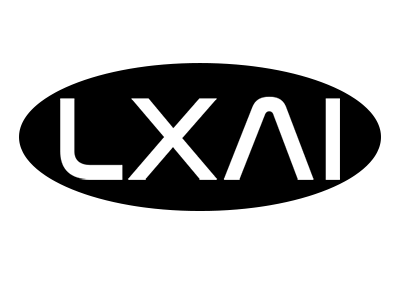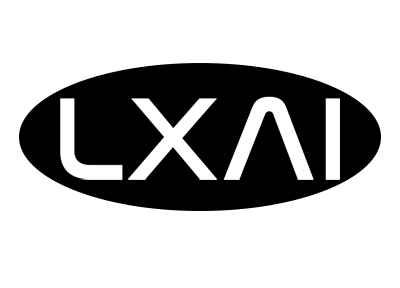LatinX in AI Research at NeurIPS 2023
The 6th Annual Latinx in AI Research workshop will be held on December 11th, 2023 at the Ernest N. Morial Convention Center in New Orleans, LA (USA), as a part of the 37th Annual Conference on Neural Information Processing Systems (NeurIPS). The workshop will embrace an hybrid format, welcoming attendees both onsite and virtually.

LatinX in AI Workshop @NeurIPS 2023
December 11, 2023 - 8 AM - 4:30 PM (GMT-5)
Morning
08:15~08:25 — Opening remarks
08:25~09:00 — Keynote: Dr. Elvis Saraiva
Deep learning for the identification of multidrug resistance in MALDI-TOF MS samples of Escherichia coli
09:00~09:15 — Oral presentation #1
FMG-Net and W-Net: Multigrid Inspired Deep Learning Architectures For Medical Imaging Segmentation
09:15~09:30 — Oral presentation #2
09:30~10:00 — Coffee break
Explaining Drug Repositioning: A Case-Based Reasoning Graph Neural Network Approach
10:00~10:15 — Oral presentation #3
Joint Inversion of Time-Lapse Surface Gravity and Seismic Data for Monitoring of 3D CO2 Plumes via Deep Learning
10:15~10:30 — Oral presentation #4
10:30~11:05 — Keynote: Dr. Sara Hooker
11:05~11:50 — Mentorship panel
Noon & Afternoon
11:50~12:05 — Sponsor talks
12:15~13:30 — Lunch
13:30~14:15 — Sponsors panel
14:15~14:50 — Keynote: Dr. Alexander Rodríguez
14:50~15:15 — Keynote: Miguel San Martin
15:15~15:20 — Closing remarks
15:30~16:30 — Joint poster session

Keynote Speakers
Miguel San Martin was born on January 6, 1959, in Villa Regina, Rio Negro, grew up in Buenos Aires. He pursued his dream of contributing to space exploration by coming to the United States after graduating from Don Bosco industrial school. He earned a summa cum laude degree in Electrical Engineering from Syracuse University, being named Engineering Student of the Year, and a Master's degree from Massachusetts Institute of Technology in Aeronautics and Astronautics Engineering, specializing in interplanetary Guidance, Navigation, and Control. Miguel worked at NASA's Jet Propulsion Laboratory, taking on various key roles in missions to Venus, Saturn, and Mars, including serving as Chief Engineer for the Pathfinder mission and landing the first robotic vehicle on Mars. He co-architected Curiosity's innovative SkyCrane landing and currently serves as Chief Engineer for JPL's Guidance and Control Section, offering support for science missions. He received prestigious awards for his contributions. Miguel is happily married to Susan and a proud father to Samantha and Madeleine.
Dr. Alexander Rodríguez is an Assistant Professor in Computer Science at the University of Michigan and holds a PhD from the Georgia Institute of Technology. His research spans the intersection of machine learning, time series analysis, and scientific modeling, with a focus on applications in public health and community resilience. His work has garnered recognition through publications at premier AI conferences and multiple awards, including a best paper award. He has also been named a 'Rising Star in Data Science' by the University of Chicago Data Science Institute and a 'Rising Star in ML & AI' by the University of Southern California. His homepage is alrodri.engin.umich.edu.
Dr. Sara Hooker leads Cohere For AI, a non-profit research lab that seeks to solve complex machine learning problems. Cohere For AI supports fundamental research that explores the unknown, and is focused on creating more points of entry into machine learning research. With a long track-record of impactful research at Google Brain, Sara brings a wealth of knowledge from across machine learning. Her work has focused on model efficiency training techniques and optimizing for models that fulfill multiple desired criteria -- interpretable, efficient, fair and robust. Before Cohere For AI, she was the founder of Delta Analytics, a non-profit that brings together researchers, data scientists, and software engineers to volunteer their skills for non-profits around the world.
Dr. Elvis Saraiva is the co-founder of DAIR.AI, where he leads all AI research, education, and engineering efforts. He holds a PhD from the National Tsing Hua University with a focus on NLP. He focuses on training and evaluating large language models (LLMs) and large-scale information retrieval systems. Previous to this, he was at Meta AI, where he supported and advised world-class products and teams such as FAIR, PyTorch, and Papers with Code. Elvis also advises leading AI companies on AI research and product strategies. Prior to this, he was an education architect at Elastic, where he developed technical curriculum and courses for the Elastic Stack.
Call for Participation
The workshop is a one-day event with invited speakers, oral presentations, and posters. The event brings together faculty, graduate students, research scientists, and engineers for an opportunity to connect and exchange ideas. There will be a panel discussion and a mentoring session to discuss current research trends and career choices in Artificial Intelligence and Machine Learning. While all presenters will identify primarily as LatinX, all are invited to attend.
Attendance Options
The LatinX in AI Workshop will be a Hybrid Event with a physical component at the New Orleans Convention Center, and a virtual component occurring simultaneously.
Important Dates
Program Committee Application Acceptance Notification - September 22nd, 2023
Paper Submission Deadline (Submission website) - September 25th, 2023 - 7th October, 2023
Registration & Travel Grant Application Deadline (Application form) - October 14th, 2023
Volunteering Application Deadline (Application form) - October 14th, 2023
Paper Submission Acceptance Notification - October 20th, 2023 - October 23rd, 2023
Registration & Travel Grant Acceptance Notification - October 21st, 2023 - October 25th, 2023
Volunteering Application Acceptance Notification - October 23rd, 2023 - October 25th, 2023
Paper Final Manuscript Submission Deadline - November 10th, 2023
Paper Talk Recording Submission Deadline - November 10th, 2023
Workshop Day - December 11th, 2023
* Dates are subject to change, so please keep track of our latest schedule published above.
Submissions
Overview
We strongly encourage students, post-docs, and researchers who primarily identify as Latinx in all areas of Artificial Intelligence and Machine Learning to submit a paper describing new research. We welcome paper submissions in theory, methodology, and applications. We also welcome papers currently under preparation or submitted for review elsewhere, as the purpose of this workshop is to disseminate LatinX in AI work within the broader community.
While the presenting author need not be the first author of the work, we encourage authors to highlight the contribution of Latinx individuals — particularly the presenting author. While the event focuses primarily on researchers who identify as Latinx, everyone is invited to attend. Authors are also encouraged to sign up to review for LXAI, with a sign-up option available upon submission.
Authors of accepted papers will be asked to present their work in a poster session. A set of selected papers will be chosen to give 5–15 minute oral and spotlight presentations.
Scope and Topics:
Computer vision
Deep learning
Knowledge reasoning
Machine learning
Multi-agent systems
Natural language processing
Statistical reasoning
Theory
Robotics
Generative AI
Large Language Models (LLMs)
Meta-Learning, one-shot, and few-shot learning
Applications of AI to specific domains
AI fairness
AI ethics
AI limitations and challenges
Guidelines
This year we are using a Conference Management Toolkit website to manage submissions and the corresponding peer-review process by our program committee. For the LatinX in AI (LXAI) Research Workshop @ NeurIPS 2023 we are accepting two kinds of submissions:
Full-papers: 4 to 8 pages excluding references. We allow supplementary material in another file. Note that these papers are expected to present novel research. If the length of the paper is less than 4 pages automatically will be considered as a short paper.
Short-papers: Up to 4 pages excluding references. No supplementary material will be allowed. They can present work in progress, exploratory/preliminary research or already published work, or any relevant artificial intelligence applications for Latin America.
In full papers, your submission may contain an appendix with a maximum of 3 pages. You may use this appendix to include details on your experimental setups, complementary results, additional theorem proofs, etc. Please note that reviewers are not required to read the appendix sections, thus the main content of your submission should remain mostly self-contained.
Style: All papers must follow the guidelines provided by the NeurIPS 2023 Style Template. Submissions should state the research problem, motivation, and technical contribution. All submissions must be in English. The paper should be sent in a single PDF file (including references). Additional material can be included in a separate file.
(Optional) Source code: We encourage authors of accepted submissions to provide a link to their source code. To maintain a double-blind review process, you will be allowed to submit or link your code in the camera-ready stage.
Desk rejection: Submissions that do not follow the length or style requirements above shall be automatically rejected without consideration of their merits.
Submission of a paper should be regarded as an undertaking that if the paper should be accepted, at least one of the authors need to register for the conference and present the work.
Policies
Submissions will be peer-reviewed by at least 2 reviewers in the area. Must be blind to the double-blind review process. Specifically, we allow two types of submissions: archival and non-archival.
Archival: Accepted works will be published as proceedings in the Journal of LatinX in AI Research. See JLXAIR open-access copyright guidelines.
Non-archival: Authors may choose to opt out of our official publication process, in which case their work will still be listed as being presented at this workshop, but not listed in our official proceedings or issued a DOI for citation tracking purposes.
Accepted Papers
Presenters
Posters Guidelines
For this year’s event, the size of the poster should be 24 inches (wide) by 36 inches (height), i.e., in portrait mode. Each poster should include the LXAI and NeurIPS logos. Additional instructions can be found in the shared website https://wiki.eventhosts.cc/reference/physical-poster-presenter-instructions, but please note that that we will be able to provide poster boards.
The logos can be found following this link: LXAI and NeurIPS logos.
| Paper Title | Author Names | Affiliations |
|---|---|---|
| BERTaú: Itaú BERT for digital customer service | Paulo R Finardi, José Die Viegas, Gustavo Ferreira, Alex Fernandes, Vinicius F Caridá | Itaú-Unibanco |
| Delta Data Augmentation: Enhancing Adversarial Robustness with Adversarial Sampling | Iván Reyes-Amezcua, Jorge E Gonzalez Zapata, Gilberto Ochoa-Ruiz, Andres Mendez-Vazquez | CINVESTAV; Tec de Monterrey |
| Self-Consuming Generative Models go MAD | Josue Casco-Rodriguez, Sina Alemohammad, Lorenzo Luzi, Ahmed Imtiaz Humayun, Hossein Babaei, Daniel LeJeune, Ali Siahkoohi, Richard Baraniuk | Rice University; Stanford University |
| Cluster-Aware Algorithms for AI-Enabled Precision Medicine | Amanda M Buch, Conor Liston, Logan Grosenick | Weill Cornell Medicine, Cornell University |
| Deep learning for the identification of multidrug resistance in MALDI-TOF MS samples of Escherichia coli | Xaviera Lopez-Cortés, Jose Manriquez-Troncoso | Universidad Catolica del Maule |
| Contrastive Predict-and-Search for Mixed Integer Linear Programs | Taoan Huang, Aaron Ferber, Arman Zharmagambetov, Yuandong Tian, Bistra Dilkina | University of Southern California; Meta |
| Evaluating Non-Functional Requirements Classification for Spanish Text: Traditional vs. Deep Learning Approaches | María Isabel Limaylla-Lunarejo, Nelly Condori-Fernandez, Miguel Angel Rodriguez Luaces | Universidade da Coruña |
| Learning Abstract World Models for Value-preserving Planning with Options | Rafael Rodriguez-Sanchez, George Konidaris | Brown University |
| Towards automatic identification of self-reported COVID-19 tweets: introducing a multilingual manually annotated dataset, baseline systems, and exploratory evaluations | Ramya Tekumalla, Luis Alberto Robles Hernandez, Juan M Banda | Georgia State University |
| Assessment of Semantic Segmentation Models for Landslide Monitoring Using Satellite Imagery in Peruvian Andes | Roy Yali, Pablo Fonseca, Cesar Beltran | Pontifical Catholic University of Peru |
| FMG-Net and W-Net: Multigrid Inspired Deep Learning Architectures For Medical Imaging Segmentation | Adrian Celaya, Beatrice Riviere, David Fuentes | Rice University; UT MD Anderson Cancer Center |
| Enhancing Anomaly Detection with Spatial Transform Networks | Renato Castro Cruz, Cristian Lazo Quispe | National University of Engineering; Universidad Nacional de Ingenieria |
| Explaining Drug Repositioning: A Case-Based Reasoning Graph Neural Network Approach | Carolina González-Cavazos, Roger Tu, Meghamala Sinha, Andrew I. Su | Scripps Research Institute |
| Evaluating zero-shot image classification based on visual language model with relation to background shift | Flávio Arthur Oliveira Santos, Maynara Donato de Souza, Cleber Zanchettin | Universidade Federal de Pernambuco |
| CNN Analysis of Tau Pathologies based on Post-mortem Immunofluorescence Imaging | Liliana Diaz-Gomez, Jose A. Cantoral-Ceballos, Miguel A. Ontiveros-Torres, Andres E. Gutierrez-Rodriguez | Tecnologico de Monterrey; Mahle |
| The Representation Jensen-Shannon Divergence | Jhoan K. Hoyos, Santiago Posso-Murillo, Luis G. Sanchez-Giraldo | University of Kentucky |
| A Saliency-based Clustering Framework for Identifying Aberrant Predictions | Aina Tersol Montserrat, Alexander R. Loftus, Yael Daihes | signalPET |
| Behavioral Classification and Characterization of Autism Spectrum Disorder in Naturalistic Settings using Classical Machine Learning | Elliot Huang, Lemuel Mojica Vazquez, Nicolas Echevarrieta-Catalan, Laura Vitale, Daniel S. Messinger, Vanessa Aguiar-Pulido | Georgia Institute of Technology; Ana Mendez University; University of Miami |
| Joint Inversion of Time-Lapse Surface Gravity and Seismic Data for Monitoring of 3D CO2 Plumes via Deep Learning | Adrian Celaya, Mauricio Araya-Polo | Rice University; TotalEnergies |
| Task-Specific or Task-Agnostic? A Statistical Inquiry into BERT for Human Trafficking Risk Prediction | Ana Paula Arguelles Terron, Jorge Yero Salazar, Pablo Rivas, Ernesto Quevedo Caballero, Alejandro Rodriguez Perez | Baylor University |
| L1-Based Neural Gas Algorithms | Nico L. Cavalcanti Jr, Francisco de A. T. de Carvalho | Universidade Federal de Pernambuco |
Mentoring Program
LatinX in AI is hosting a new mentoring program alongside our official workshops. The LatinX in AI Mentoring Program requires mentors and mentees to meet once a month. The program for this cohort has begun, but we continue to accept applications throughout the year. Thank you for your interest!
LatinX in AI Workshop Sponsors
We would like to thank the following sponsors for their contributions towards making the LatinX in AI Workshop at NeurIPS 2023 possible. For sponsorship opportunities, please contact us at: sponsor@latinxinai.org.
PLATINUM
BRONZE
ZINC
NETWORKING RECEPTION
NICKEL
Organizing Committee
General Chairs — Ignacio G. López-Francos (NASA Ames Research Center)
Mentorship Chairs — Brayan Valdés Ortiz (Amazon), Sebastian Caldas (Princeton University), and Vinicius Fernandes Caridá (Itaú)
Presentation Chairs — CJ Barberan (Microsoft), and Cisco Zabala (AWS)
Program Chairs — Cleber Zanchettin (Universidade Federal de Pernambuco), and Karla Caballero Barajas (Sirus XM)
Public Relations Chairs — Vítor Nascimento Lourenço (Universidade Federal Fluminense/City, University of London), and Walter Mayor
Social Chairs — Aaron Ferber (Cornell University)
Sponsor & Finance Chairs — Ana María Quintero (Nubank), and Marco Sanchez Sorondo (Universidad de Buenos Aires)
Visa Chairs — Abel Andres Reyes Angulo (Michigan Technological University)
Volunteer Chairs — Luis Gonzalo Sanchez Giraldo (University of Kentucky), and Rocio Athziri Padilla Medina (University of Houston)



















